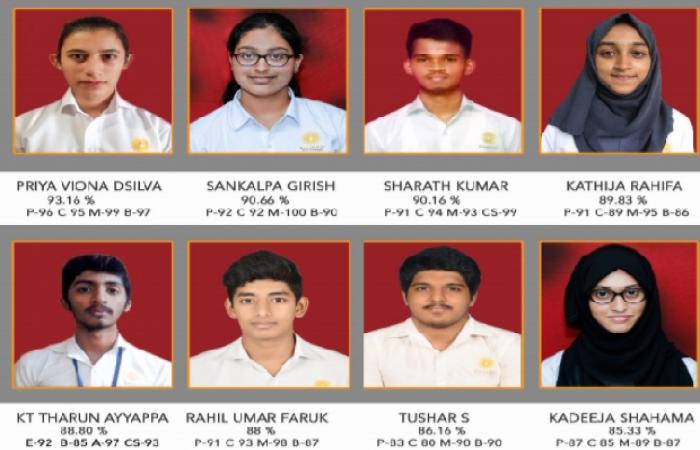 Aug 15: When the news came that Manjul Bhargava, a Canadian-American mathematician of Indian-origin, had won the Fields Medal known as the "Nobel" for mathematics, one of my colleagues, a mathematician himself, remarked, "The best thing his family did was leave India. This wouldn"t have been possible if he"d stayed here." All I could do in response was nod regretfully. The last time an India-based academic won the Nobel was C.V. Raman in 1930 which, if nothing else, is a damning indictment of our higher education sector.
Aug 15: When the news came that Manjul Bhargava, a Canadian-American mathematician of Indian-origin, had won the Fields Medal known as the "Nobel" for mathematics, one of my colleagues, a mathematician himself, remarked, "The best thing his family did was leave India. This wouldn"t have been possible if he"d stayed here." All I could do in response was nod regretfully. The last time an India-based academic won the Nobel was C.V. Raman in 1930 which, if nothing else, is a damning indictment of our higher education sector.
Not a single Indian institution could crack the top 200 in the 2014 The Times Higher Education World Reputation Rankings that rank institutions according to their global prestige. The Indian Institute of Science (IISc) and the IIT Bombay, who were ranked 130 and 192 respectively in 2013, also fell below 200. Forget the developed world; India is the only BRIC nation not to be represented in the top 100; mainland China has two representatives while Brazil and Russia have one each. And that folks is just the tip of the iceberg. According to the World Bank, India"s investment in research and development stands at less than 1 percent of GDP. Contrast that with the United States, which manages almost 2.8 percent even in these days of recession or Germany with a little more than 2.5 percent. Leave alone undertaking significant research or publication, hordes of professors in India don"t even complete their PhDs. In far too many colleges professors don"t even bother to teach. And the less said about the crumbling infrastructure the better.
If that isn"t depressing enough, the education that exists is hardly anything to shout about. The Greek philosopher Socrates once stated, "Education is not the filling of a vessel but the kindling of a flame." The spark of curiosity, which is the necessary precursor of innovation and creativity, is effectively killed by the rote learning that predominates. Instead of fomenting a spirit of inquiry, the many hours of ruttafication or mugging pump the student"s head full of facts. As if that isn"t enough, over the last four decades the accent on professional education has devalued the humanities so much that even the nation"s best minds have got programmed to believe that an anonymous job in management, engineering or health is better than seeking to carve out a brave new vision as a writer or a thinker. To paraphrase the American author F.Scott Fitzgerald: Most lives end in compromise. It is as a compromise that far too many Indian lives begin. No wonder we have to go back to British India and C.V. Raman for the last indigenous Nobel Prize. An even more alarming by-product of the obsession with professional education is that teaching, once considered an eminent and respectable profession, now languishes as a profession of last resort. Instead of drawing the best and brightest, it is increasingly seen as an option for losers. Can an education system be stellar if the educators themselves are mediocre? Not likely.
The point is that, any way you look at it, our higher education system is a disaster; a disaster made even more tragic by the fact that it is the world"s third largest higher education sector in terms of enrollment. The number of people it continues to fail is monstrous. The people it helps most, thanks to its persistent failure, are foreign colleges and universities who are only too happy to lap up the hard-earned money of Indian students and their families. Even to attend a mediocre government university in America, Britain or Australia, Indian students have to fork out at least two times what a local pays. And that only takes into account tuition. In addition to tuition, they have pay for accommodation, subsistence and foreign travel. They do so in increasing numbers. It is not simply the allure of the phoren degree that draws them. It is also the dysfunctional system back home that fosters the desire to flee.
In any country such a state of affairs would lead to much introspection, leave alone one that sees itself as an emerging superpower. How do you become a superpower with a rotting higher education sector? That concern would be uppermost in the minds of people making education policy. In India, however, the concerns are very different. The two education-related debates currently raging have absolutely nothing to do with the quality of higher education. The UPSC debate is focused on the language in which the CSAT should be administered while the UGC debate zeroes in on whether undergraduates should complete their degrees in three years or four. They are centered on how the students should learn rather than ensuring they learn at an acceptable level.
While institutions entrusted with making education policy fiddle with method, ideologues wage battles to bend education policy in their direction. Quality is invariably the loser here as such individuals are driven by ideological agendas. We should be discussing what to do about the crumbling infrastructure or unwieldy class size. Instead, the education debate is mired in swadeshi versus videshi or English versus Hindi.
Nelson Mandela once said, "Education is the most powerful weapon which you can use to change the world." Before we think of changing the world, we must reform our higher education sector so that it changes India for the better. Our centres of learning once attracted scholars, thinkers and travellers from all over the world. The ancient Nalanda University was one of the first powerhouses of global education and research. That is what makes the mediocrity in which India"s higher education currently languishes such a bitter pill to swallow. If you take specialized, technical institutions such as the IIMs and the IITs out of the mix, we look even worse.
Can we reverse the trend? Of course we can. You don"t have to be a rocket scientist to figure out what is wrong with the higher education sector and take measures to correct it. It involves recognizing the need for an academic culture that challenges the best minds to aim for excellence rather than subsistence. For that to happen research and teaching must be made more lucrative so that they attract the best and the brightest who, in turn, can inspire the best and the brightest in the generations to come to follow in their footsteps. But a more pertinent question is: Do we have the will to take such a pragmatic approach to higher education and fix it? The answer to that is we"d better. If we do not then it won"t matter in which one of India"s twenty-two official languages our students are instructed or whether they complete their undergraduate degrees in three years or four. They will continue to be far from world-class and our nation will continue to trail the developed world.








Comments
Add new comment